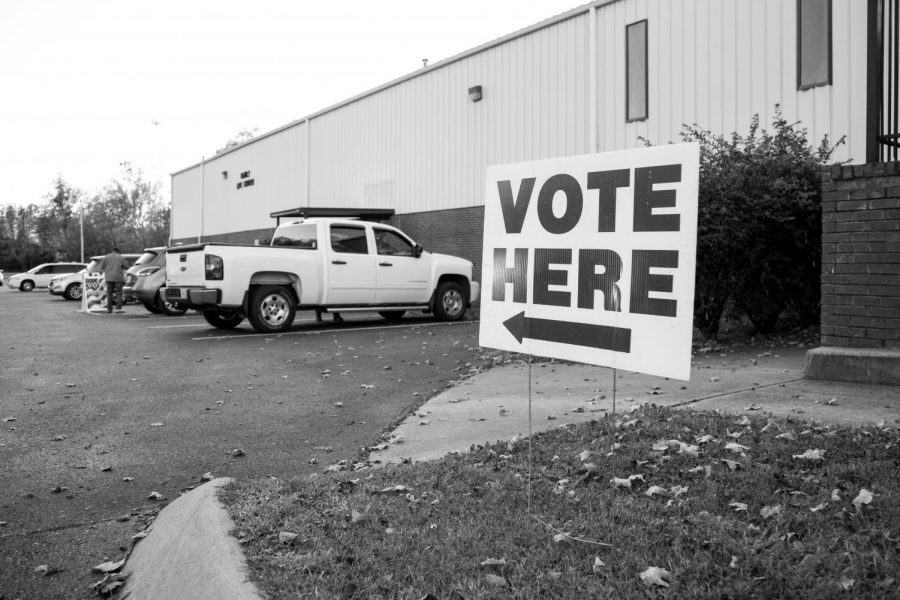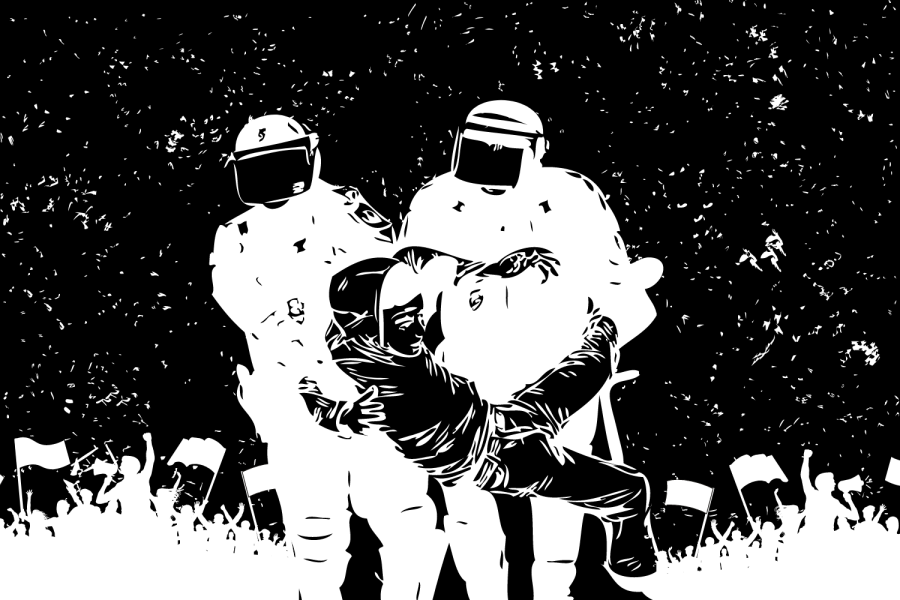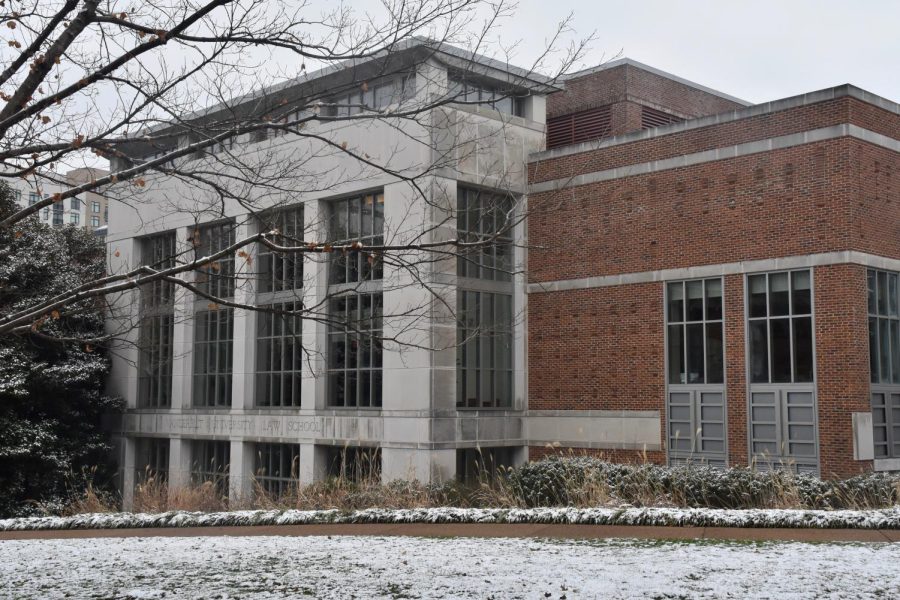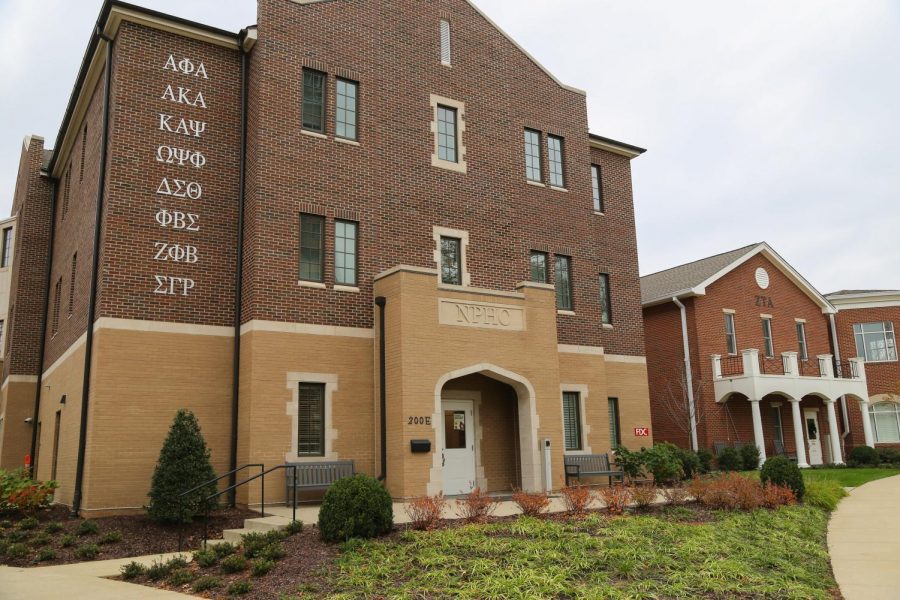Nov. 3 quickly approaches as many shudder in fear of a continued Trump presidency. Outcry for greater voter turnout from the Democratic Party has resulted in the resurgence of get-out-the-vote organizations to encourage young voters to do their righteous, democratic duty. However, history proves that these efforts are a waste, as voter suppression, social regression and power constructs indicate that voting will never be a true means to significant, long-lasting social change.
Since its conception, the Democratic and Republican parties—bastions for progressive and conservative principles, respectively—have put the rights of marginalized folks under perpetual jeopardy. Recently, Democratic presidents, like former-President Obama, enabled bombings that resulted in the deaths of countless innocent civilians caught in the crossfire of U.S. imperialism. From the beginning of Trump’s reign, the president has shown no remorse for disadvantaged people, persecuting these communities via increased funding to the military, cuts to health insurance and building a wall along the southern border, among other atrocities. Current human rights violations, like those highlighted by the Black Lives Matter movement, continue to echo atrocities rooted in these parties. Unfortunately, corrupt candidates from either party can seize power by organizing their established, wealthy voter bases, compromising underfunded grassroots campaigns within marginalized communities.
The issue with incremental change
Though the disparities minorities face require an antidote stronger than voting, politicians relentlessly instill disadvantaged voters with the “pull ourselves by our bootstraps” narrative, hoping to accrue more votes by exclaiming that marginalized voters can end our suffering if we simply vote for them. The false sense of power is diminished when disadvantaged communities see long wait times to enter polling places. According to research at the University of Pennsylvania, the afflicted, disproportionately poor communities sacrifice a greater proportion of their income waiting in lengthy lines to vote, discouraging them from participating in future elections.
The same study found that lines to enter polling places in predominantly white communities were half as long. Thus, it is clear that disenfranchised communities are not welcome in polling places, as the opportunity cost to vote is cheaper in white, often richer communities that allow residents to save money via expedited lines.
Even when a favorable Party attains power and implements policies expanding human rights, they are often only incrementally expanded and at risk of being overturned by future administrations. On April 20, 2012, the Equal Employment Opportunity Commission declared that transgender discrimination in the workplace was defendable under Title VII of the Civil Rights Act in the case of Macy v. Holder. Attorney General Jeff Sessions, appointed by Trump, took swift action to reverse the historic decision, jeopardizing the little socioeconomic security the transgender community relied on for survival. Fortunately, the Supreme Court decided against this reversal in a 6-3 ruling earlier this year; however, in a just system, any human rights—especially previously attained ones—would never be jeopardized in the first place by an opposing administration.
The unchecked power of executive orders are also a threat to social progress and can limit established rights. President Trump, for example, took swift action against reproductive rights when he famously signed an executive order that denied funding for clinics that administered abortions, quickly undoing a previous rule that defended these clinics.
Though the gay community fought decades before for federal gay marriage legalization, the basic right was enacted merely five years ago. Unfortunately, many died of old age waiting for a favorable administration to claim power—one that never came in their lifetime to acknowledge their birthright.
Forcing minorities to wait for incremental change is immoral.
How the white majority impacts voting
Historically, elections have served to amplify the wealthy, white male voice. Covert displays of systemic voter suppression like the grandfather clause, literacy tests and poll taxes effectively disenfranchised the disadvantaged, leaving them with centuries of suffrage movements, like those for incarcerated individuals, that still persist. Poor white voters were collateral damage, setting a precedent for modern politics that would prioritize power at any cost.
Under elections with simultaneous uplift of white voices and disenfranchisement of minorities, white people have never been more instrumental in the success of liberatory movements. As the white population continues to dominate the U.S., comprising 76.3 percent of the population, white concerns will be prioritized. The preservation of whiteness trumps the preservation of all other intersecting disadvantaged identities like gender, resulting in the staggering 52 percent of white women who voted for Trump despite his misogyny. With whiteness intact, the collateral damage done to the disadvantaged identities that the 52 percent simultaneously hold can be ignored.
When whiteness allows people to avoid race-related police brutality and other race-based violence, it is easy to see why the interests of even the most well-meaning white people can subconsciously sway towards the preservation of white supremacy. Depending on such a volatile populace to vote in solidarity is too risky, especially when they cannot relate to our struggles on a singular or intersectional level.
The revolutionary road to a world without voting
Groups like the historic AIDS Coalition to Unleash Power (ACT UP) and Black Panther Party have used civil disobedience as a last resort to steer voting results towards liberation for the LGBTQ+ and Black communities respectively. Relentless demonstrations from ACT UP in the 1980s forced the Reagan administration to increase federal funding for AIDS research, prevention and education. Militant disobedience from the Black Panther Party, who demanded proper housing, an end to racist violence and employment, among other human rights for the Black community, captured the attention of politicians and forwarded the fight for civil liberties in the name of self-defense, inspiring modern movements.
In the case for human rights, finding a fair voting system is unproductive. Systems that aim to include everyone’s voice will include those against marginalized people—most of which have greater voting capital—paving way for oppression while using the prospect of human rights as bait for participation. Ranked-choice voting, a voting system that aims to revive democracy by allowing voters to rank candidates, is still ineffective under elections mediated by a nation that encourages covert oppression via dog-whistle politics and voter suppression.
Even the purpose of voting—to moderate civil liberties—should be met with disdain. Meeting requests for birthrights with debate and referendum is not revolutionary nor empowering—it is dehumanizing and especially detrimental when our requests are denied.
By following in the footsteps of ACT UP and the Black Panther Party, we can directly give back to marginalized communities. Laws pertaining to human rights must be unforgivingly seized from white supremacist institutions by marginalized classes by adopting the disobedient methods of the Black Panther Party to eliminate all mediums of oppression, including government positions that allow for skewed distributions of power.
Though one can protest and vote simultaneously, continuing to participate in a voting system coordinated by an oppressive institution for a sprinkle of human rights will never bring true liberation in the long term. In short, election systems were never meant to assist in liberation—minorities will always struggle to gain rights under these systems, promoting a cycle of human rights deprivation and elections. Hence, relentless organization and disobedience is the only way to topple the infrastructures aiming for our demise. To maximize success, everyone must undergo lifelong processes of unlearning white supremacist narratives that contribute to macro and microaggressions. Eventually, titles of presidents and similar positions will be abolished, as their mere existence will threaten the newly un-marginalized. Laws need not to be passed by privileged, high-ranking government officials—equity measures formed by the marginalized classes will ensure proper redistribution of capital to all.
Of course, voting still provides some capital for minorities to have political autonomy. Some minorities may find voting empowering, as they defiantly participate in elections they are not welcome in. Even then, we must recognize that these subsets are mere exceptions who possess privileges many lack. Being reliant on the few minorities who have managed to escape voter suppression to achieve civil liberties will only detract from the ideal end of granting all liberation.
In the 1956 election, civil rights activist W.E.B. DuBois did not vote. His famous essay recounts his frustration with the deadly dichotomies presented in presidential elections, and the futility of upholding the American election that will forever uphold the racist two-party system. The message raised in 1956 can be adapted to fit modern times: “with Eisenhower [Trump] and Eastland [Biden], we remain in the same mess. I will be no party to it and that will make little difference. You will take large part and bravely march to the polls, and that also will make no difference. Stop running Russia and giving Chinese advice when we cannot rule ourselves decently. Stop yelling about a democracy we do not have. Democracy is dead in the United States. Yet there is still nothing to replace real democracy. Drop the chains, then, that bind our brains. Drive the money-changers from the seats of the Cabinet and the halls of Congress. Call back some faint spirit of Jefferson and Lincoln, and when again we can hold a fair election on real issues, let’s vote, and not till then.
Is this impossible? Then democracy in America is impossible.”






Justin Munoz • Nov 9, 2020 at 9:43 pm CST
While I do believe that democracy cannot create a just system (at least at our current state), it is better than violence. Violent revolution over every little bit of racial injustice is unstable. Sure, racial injustice is unacceptable, but violence will cause movements to become emotionally driven to a point that they harm without a justified reason. Violence will only make problems worse. Take the BLM right now. I’m personally against violence in general, but even assuming that violence is OK, there are many ways that it’s unjustified. For one, it isn’t actually accomplishing anything: public consensus is significantly lower because of the people that are aware of racial injustice to a low extent, but will become biased against movements if they are violent. Additionally, there is much discrimination against police at the moment, and police have even been shot due to the mass hysteria.
I think the best way to create justice is to create an epistocracy. By doing so, we will be electing competent people into office that know what they’re doing, and know the complexities of every situation. These people will be able to handle many of the injustices, and will certainly work to rid of racial injustice.
Tony Stark • Sep 22, 2020 at 7:33 pm CDT
^He doesn’t need anarchist thinkers, he’s got Che Guevara. This argument has been made many times, just using class instead of race. That’s why “race relations are static,” even though in real life they obviously aren’t; they’re being used a proxy for proletariat/bourgeoisie dynamics. Marxian conflict theory at work. Dude, your friend is a communist.
RN • Sep 21, 2020 at 10:23 pm CDT
Danny, can’t you see how fatalistic and self-defeating your arguments are? You’re argument is basically that white people make it hard for minorities to vote; therefore, don’t even bother voting! You even cite the injustices of the Jim Crow South, which were addressed (in part) by democratically elected leaders who most certainly would not have bothered passing laws like the Voting Rights Act had marginalized people boycotted voting. Do you think race relations are static? Do you think racial attitudes are immutable? Do you think people of color wield no political power in this country, even though black people almost single-handedly determined the outcome of the Democratic primary? And what about state & local government? Should marginalized people boycott voting for their own community leaders, who determine what they learn in school? Or should we just surrender education to the right and protest when they defund public schools?
If you’re going to argue for anarchism, try to draw upon the long tradition of brilliant anarchist thinkers. Their takes are a lot more convincing than the manichean, unscientific, and ahistorical view of democratic life that you’ve articulated here.
Someone with a brain • Sep 21, 2020 at 10:12 pm CDT
This is the dumbest collection of incoherent drivel that I have ever read. Not only does this person not present an alternate solution for the problem that he has created, but half the problems that the writer is lamenting are no longer problems! Imagine saying “everything wasn’t perfect from the beginning so we should just abolish it all.”
Also, I’m a liberal, but imagine reducing the 52% of white women who voted for Donald Trump to just people who wanted to preserve white supremacy. That’s simply not true. Partisanship, being strictly anti-abortion, and economic stress are all reasons why good people voted for Donald Trump.
No, America is not perfect. We obviously still have a lot of things that we need to change for the better. But the cowardice displayed in this article by calling for the *abolition* of our democracy and voting and not even presenting a better way forward? Awful. Criticize all you want but if we want progress, we need to do it by voting, activism, and winning hearts and minds. I recommend that the person who wrote this takes a couple political science classes – otherwise, this is the same kind of closed-minded intolerance that we blame conservatives for practicing. You’ll never achieve any social or political change by sitting in the corner complaining about how everything except your opinion is bad. Good luck.
RK • Sep 21, 2020 at 3:52 pm CDT
This is *quite* aspirational. In the current state of our society, we must vote. Plus, allowing for social movements to lead to change also opens the floodgates to policies and practices desired by undesirable minorities (e.g., white supremacist factions, KKK, etc.). White supremacist groups did not engage in “civil disobedience” in the 60s because the law *protected* them and their views. Remove the president “and similar positions” and you eliminate the laws that protected them as well, so now they’re “marginalized.” What’s to stop a “marginalized” KKK from protesting to ban Black people from public spaces, or worse, from killing Black people? Why do you assume that facilitating social change only through protests and community-led movements — and not voting — will lead only to positive, equitable changes?
Bender • Sep 17, 2020 at 11:10 am CDT
YES. This needed to be said. The whole world must learn of our peaceful and equitable ways… BY FORCE.
Tony Stark • Sep 17, 2020 at 10:46 am CDT
Wait, so does this mean that BLM was 3 communists in a trenchcoat all along???